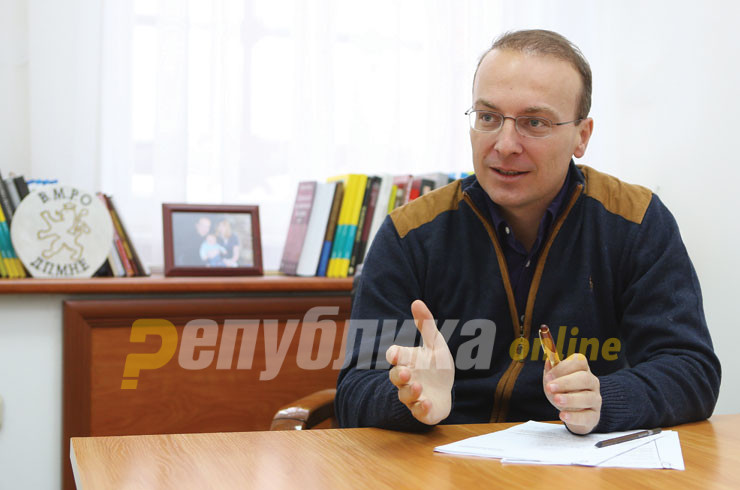Parsing the results from the presidential elections, Antonio Milososki from VMRO-DPMNE said that they showed the local officials allied with the Zoran Zaev Government won’t be able to hide behind the excuse that they didn’t accomplish anything because all energy was focused on renaming the country. Zaev’s SDSM party lost the overwhelming majority of ethnic Macedonian districts, and it was only due to near unanimous voting by ethnic Albanians in its favor that its presidential candidate Stevo Pendarovski managed to win the elections and get the electoral map to a point that SDSM still looks like a national contender party.
The mayors of Veles or Prilep had nothing to do with the Prespa treaty or the name referendum, and neither should’ve had. They should’ve worked to turn the promises they made to the citizens into reality, Milososki said, mentioning just two of the dozens of majority Macedonian municipalities which SDSM won in 2017 and lost now.
Debating Muhamed Zekiri, head of the ethnic Albanian wing of SDSM, Milososki said that the reason for the dramatic drop in support for the ruling coalition compared to 2017 is that it betrayed local and national expectations.
The Government showed a selective approach to reconciliation, it gave selective amnesty to charged members of Parliament in order to push its own agenda through. This provided no reconciliation or balancing of the political polarization, Milososki told Zekiri, referring to the amnesty law which was used to get a total of nine opposition members of Parliament, most of whom were charged in various politically driven cases, to vote to rename Macedonia in exchange for pardons.
SDSM won the presidential elections, but to do so it had to plead for support not only from its Albanian coalition partner DUI, and the three dozens of smaller, mostly ethnic minority parties, but also needed to get the support of the Albanian opposition as well, turning the race into a competition where nearly all parties fought against VMRO, and were still barely able to win.




Comments are closed for this post.